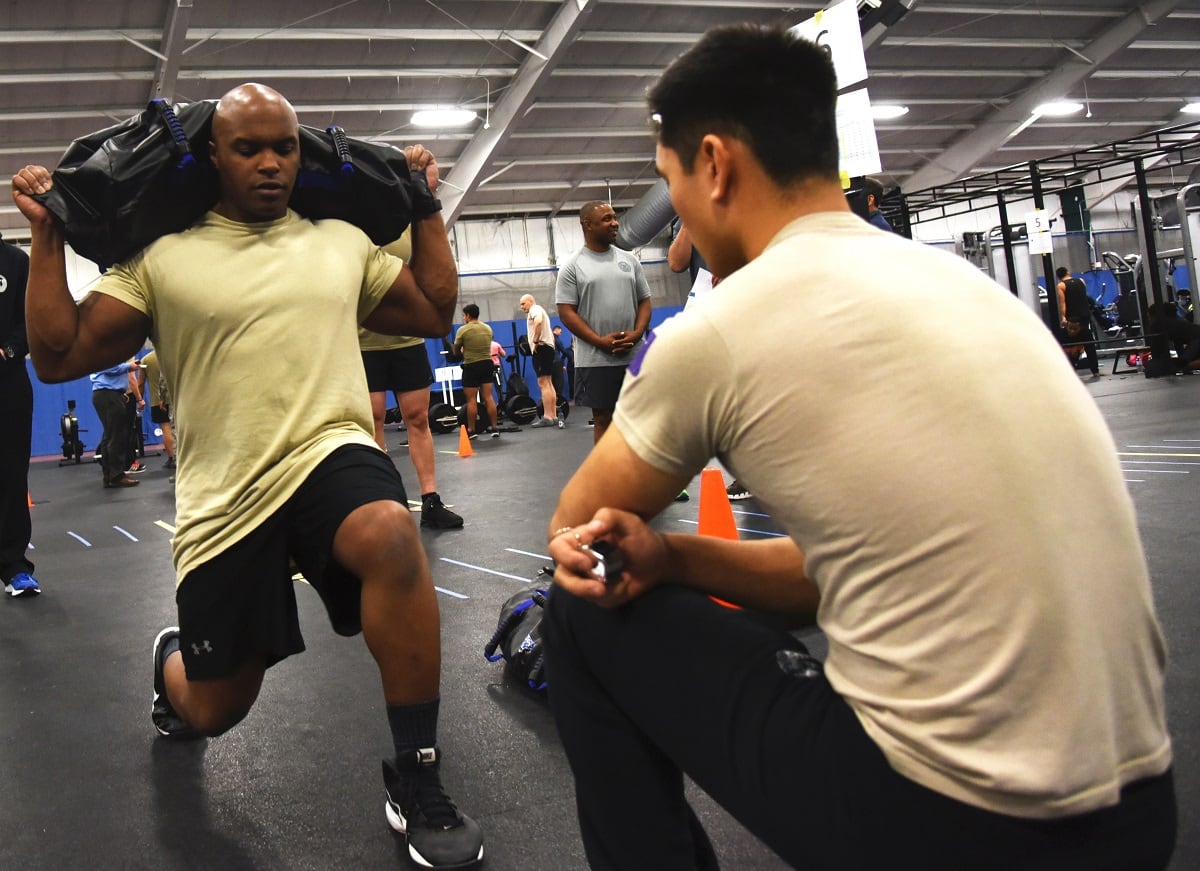The Air Force is considering changing its fitness test policies to allow airmen to take a practice examination early, without being penalized if they fail.
Currently, if an airman fails the Tier 1 physical fitness test — which includes pushups, situps, a body composition assessment and a 1.5-mile run — that failure could hurt or even potentially end a career, regardless of how much time is left before the test is due.
But under the new system being considered by Chief Master Sergeant of the Air Force Kaleth Wright and other officials, airmen — as long as they’ve got time left — could try the PT examination without worrying about negative career consequences. If an airman passes the PT test, Senior Master Sergeant Harry Kibbe said in a Wednesday phone call, it would count. If the airman fails any component, it would be just a “diagnostic” test that shows what needs improvement, but doesn’t count against the airman.
“This is ultimately one of the things we’re looking at doing to take us from a culture of fitness testing, to a culture of real fitness,” Kibbe said.
Air Force Magazine first reported the plan to change the test on Monday.
Airmen’s PT scores determine how soon they have before their next test is due. Those who score between 90 and 100 points have a year to take their next exam, and those who score at least 75 points but below 90 points must take their next test within six months. To pass, an airman must meet the minimum value in each of the four components, and score at least 75 points when all four are combined.
RELATED

Kibbe said that airmen typically wait until right before they’re due to take the test, and that there’s often a lot of anxiety associated with it. A PT failure can lead to an airman’s promotion being withheld.
The no-fail diagnostic test is an attempt to relieve some of that anxiety, Kibbe said. As long as airmen don’t pass their due dates, they can retake the test over and over until reaching the minimum score.
“If you fail, no harm, no foul — you still have time to retake it,” Kibbe said.
Wright’s team is working on the potential change with the Air Force’s A1, or manpower and personnel, directorate, as well as the exercise science unit headed by Neal Baumgartner. Air Force personnel chief Lt. Gen. Brian Kelly will ultimately make the final decision on it, Kibbe said.
It’s unclear when this change might go into effect, but Kibbe said Wright hopes to have it finished by the time he retires in fall 2020.
“He wants to get it right, instead of fast,” Kibbe said.
The new practice examination change would apply to both officers and enlisted, Kibbe said. But it would probably not apply to the Tier 2 standards, which were specifically designed for career fields such as tactical air control party, combat controller and explosive ordnance disposal airmen, Kibbe said.
Stephen Losey is the air warfare reporter for Defense News. He previously covered leadership and personnel issues at Air Force Times, and the Pentagon, special operations and air warfare at Military.com. He has traveled to the Middle East to cover U.S. Air Force operations.





